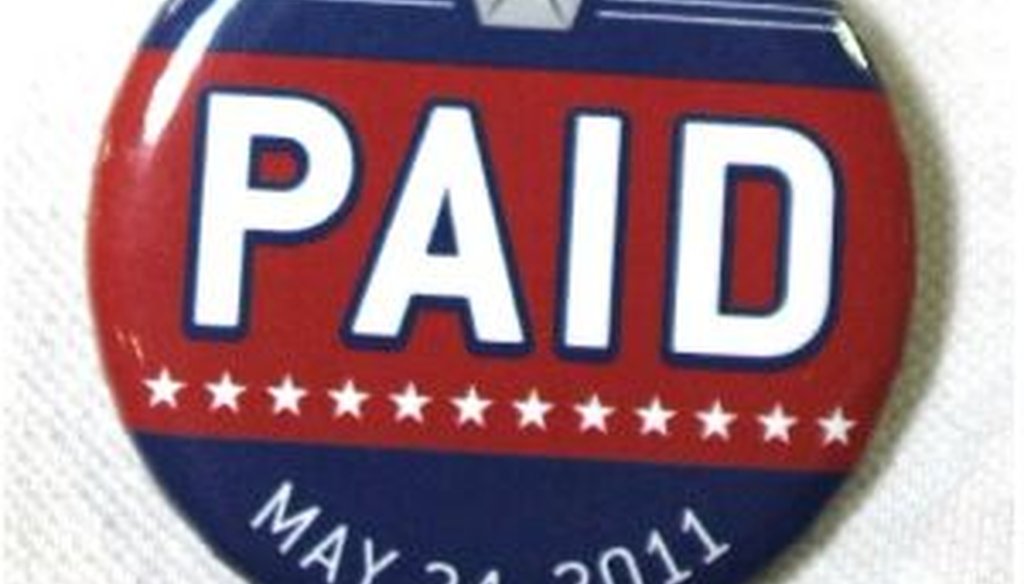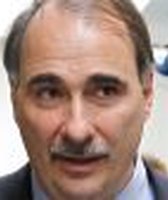Stand up for the facts!
Our only agenda is to publish the truth so you can be an informed participant in democracy.
We need your help.
I would like to contribute

A Chrysler assembly line worker sports a pin labled "PAID" on his shirt before Chrysler Group announced the repayment of the remainder of its loans from the U.S. Government.
If you listened to the celebratory pronouncements from the auto companies, you'd think they have fully paid their bill with the American public.
Through the Troubled Asset Relief Program (TARP), the U.S. government sunk billions of dollars into the auto industry in an effort to keep giants GM and Chrysler from going under. The loan repayments certainly bode well for the turnaround of Chrysler and GM, but whether the tab has been settled with the U.S, taxpayer is not as simple as whether or not the new auto companies that emerged from bankruptcies have paid back their loans.
In an announcement reminiscent of one made by GM around this time last year, Chrysler Group LLC boasted this week that it had paid back money lent to it by the American government, with interest, six years ahead of schedule.
In a press release from Chrysler Group LLC announcing the loan repayment, the company's Chief Executive Officer Sergio Marchionne stated, "Less than two years ago, we made a commitment to repay the U.S. and Canadian taxpayers in full, and today we made good on that promise."
It's technically true, but Marchionne's statement doesn't tell the full story. Yes, Chrysler Group LLC has fully repaid the loans made to it two years ago. But that's not the full measure of the American taxpayers' investments to try to save Chrysler, which included $2 billion to "old" Chrysler that was wiped out in bankruptcy. We doubt taxpayers care much about the distinctions in corporate titles. The government has now gotten most of its money back on the Chrysler bailout, but not all of it. Not yet anyway. We rated the claim Half True.
Sign up for PolitiFact texts
A year ago, we looked into General Motors CEO Ed Whitacre's boast that GM has paid back its government loans, in full, and ahead of schedule.
"A lot of Americans didn't agree with giving GM a second chance," Whitacre said in an ad. "Quite frankly, I can respect that. We want to make this a company all Americans can be proud of again. That's why I'm here to announce we have repaid our government loan, in full, with interest, five years ahead of the original schedule. But there's still more to do. Our goal is to exceed every expectation you've set for us."
But as with Marchionne, Whitacre didn't tell the full story. The Obama administration -- through the Troubled Asset Relief Program (TARP) -- committed approximately $52.4 billion to help right GM.
Only a fraction of that, $6.7 billion, was in the form of loans. Most of the government's GM investment was converted to an ownership stake in the New GM, the company that emerged from bankruptcy: $2.1 billion in preferred stock; and 60.8 percent of the company's common equity. The jury is still out on how much return the government will get on that investment.
Whitacre could accurately claim that GM has retired its $6.7 billion in loans from the U.S. government. But with the government still owning 60 percent of the company and the prospects slim for getting all its money back, we thought that was highly misleading. And so we rated Whitacre's statement Half True.
Our Sources
See individual items.












































